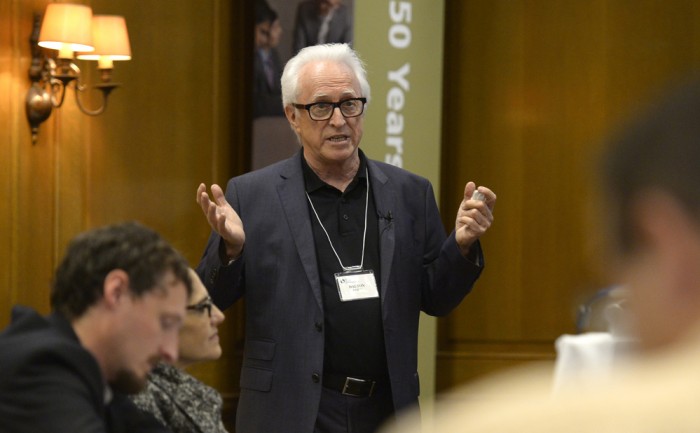Emergence: Reclaiming Your Leadership & Team Strength During Disruptive Times
Posted on May 19, 2021
In a post-pandemic world, the ability to reimagine leadership will emerge as the single most important contributor to realizing the promise of doing well by doing good.
Last week I was speaking to a leader about how their organization was planning to emerge from the pandemic. They said, “Leadership is now operating in white space – a place where agility, passion and innovation intersect.” I couldn’t have agreed more. It’s rocky times for leaders: they’ve seen increases in job responsibilities and spans of control. Through this, they’ve also been feverishly recasting vision and values and recalibrating strategy.
But the pandemic handed more to us than that: it also threw down the gauntlet to put an end to system racism; it compelled us to rethink how we protect our environment. Leaders are assessing where their biggest gaps exist, socially, technically, functionally and structurally. It will take different kinds of behaviour and fresh ways of leading during these next phases of the pandemic to close these gaps.
The 2020s will be the decade to deliver
With our eyes now trained on recovery, a new word has entered the leadership lexicon: emergence. The decisions leaders make in the coming months will cast the die on their future. The question is not just what we’ve learned over the past year, it’s how leaders harvest the fruits of their learning. Ensuring we capture key insights, innovations, and ways to broaden the path to equity are table stakes. As your organization moves forward, how you develop connective and collective intelligence amongst teams will emerge as central pillar of recovery.
And here lies the problem: in a recent Harvard Business Review study, researchers found leadership development has not kept up with the times. There is significant room for improvement: 55% of organizations judged the ROI of their current leadership as fair to very poor and less than 20% are confident they have the leaders they need to deliver on strategic priorities. Leaders are saying they want a fresh approach – and that’s what I aim to deliver.
The Missing Question
Relational leadership is a new way to think about how we lead in these disruptive times. For decades we’ve been asking the same “5W” questions about leading: who is leading, what are they leading, when and where are they leading and why are they leading. But there’s a question missing: it’s how. How we lead is the least researched and least understood domain of leadership today.
When we better understand how leadership happens, relationships improve, costly missteps are avoided, and goals more quickly achieved. Alignment and accountability are crystalized. Decisions become less reliant on what we take for granted and more evidence based. In a nutshell, relational leadership sets up the guardrails to ensure the future overall health of our organizations.
Never normal again
Many leaders have grown fatigued when they hear the term the “new normal”. But the thing is, this term implies that how we led before the pandemic was stable, that we were doing things the “right” way. If the pandemic has shown us anything, it’s that we have an opportunity to fundamentally question normal. It’s time for a new kind of leadership; one that sparks leaders to foster team health and equity. One that puts others’ perspectives above our own.
*
 Dr. Jill Birch has been a CEO and member of several C-Suites and has facilitated leadership breakthroughs for Fortune 500 organizations around the world. Drawing on this experience, her captivating and customized presentations help inspire change, build leadership capacity, and drive competitive advantage.
Dr. Jill Birch has been a CEO and member of several C-Suites and has facilitated leadership breakthroughs for Fortune 500 organizations around the world. Drawing on this experience, her captivating and customized presentations help inspire change, build leadership capacity, and drive competitive advantage.













